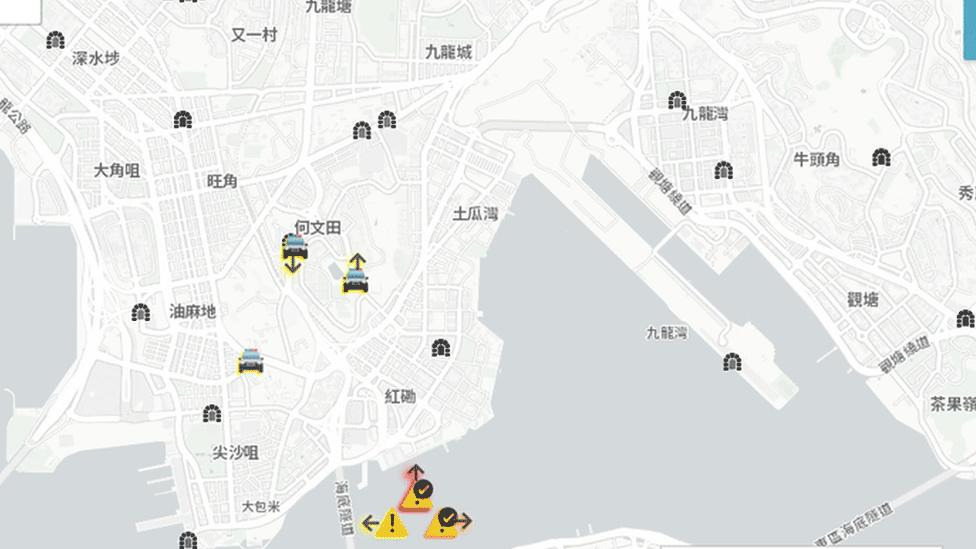Apple bans Hong Kong protest location app
- Published

HKmap Live shows the location of police
Apple has rejected a crowd-sourced app that tracks the location of protesters and police in Hong Kong.
For some, the app was seen as a way for protesters to stay safe, while others saw it as a way to evade the police.
Apple told app creators it "facilitates, enables, or encourages an activity that is not legal" - but it is still available on Google's app store.
Apple has not said whether the decision to ban it was in response to a request from the Chinese authorities.
The matter was brought to the .
Tensions in Hong Kong have risen in recent weeks, with one protester shot by local police this week in his chest.
The 18-year-old was taken to hospital with what the police said was an injury "near his left shoulder".
Police chief Stephen Lo said that firing the bullet was "lawful and reasonable".
'Sucking up'
HKmap Live gathers reports from chat app Telegram to show users the locations of spots where the police are patrolling and areas where tear gas has been deployed.
Explaining its rejection, Apple said it "allowed users to evade law enforcement".
But the app is still currently available on Google's app store and on the web.
In a tweet in response to the decision, the app's developers said they believed it was a bureaucratic error rather than censorship.
"Everything can be used for illegal purpose on the wrong hand. Our app is for info, and we do not encourage illegal activity," they said.
But not everyone had such a benevolent view.
Techno-sociologist Prof Zeynep Tufekci, said that many other mapping apps could be used for the same purpose,
"It reports locations and does nothing else. Maybe this really is Apple sucking up to China,"
In the discussion below her tweet, someone else pointed out that families with children used the app to avoid areas where tear gas was being used.
Chinese owned video-sharing platform TikTok has also been accused of censoring content about the protests in Hong Kong.
Correction 7 October 2019: A previous version of this article incorrectly stated Apple had removed the app from its store, when in fact it had not been published to the platform.
- Published25 September 2019
- Published2 October 2019